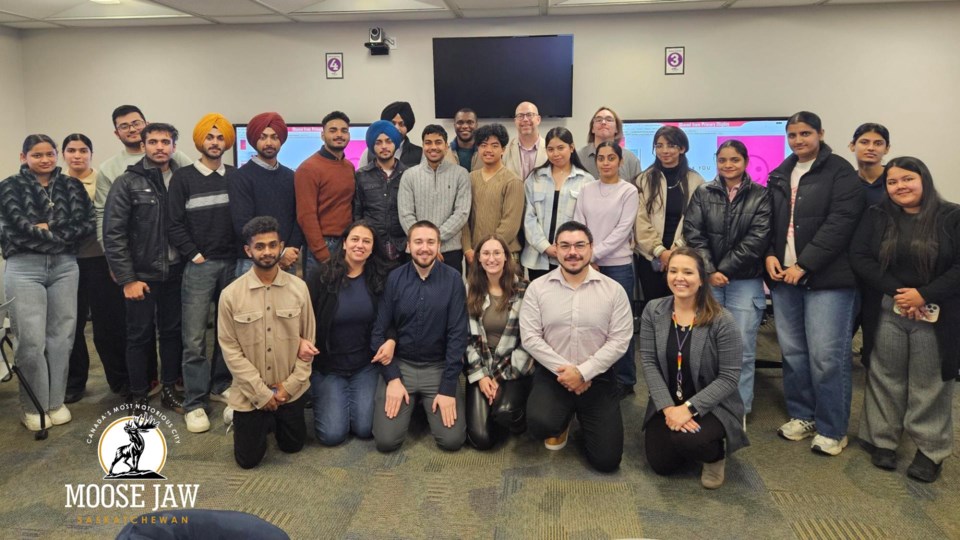MOOSE JAW — Students from the Marketing 223 course at Sask. Polytech lent their expertise to help shape Moose Jaw’s future this semester. Through a collaborative research project with the city, these students analyzed key industries to support the city’s efforts to attract investors and position itself as a thriving investment destination.
The partnership came as a result of an earlier Discovery Kickoff meeting held in mid-September and was completed and presented to the city recently.
“Craig Hemingway from the City (of Moose Jaw) came to our classroom and actually presented the idea (for the research project) to the students, and then students had an opportunity to ask questions to Craig,” explained Ashley Hatley, the Sask. Polytech School of Business and Entrepreneurship instructor behind the project.
The three-month class project involved 27 Sask. Polytech students who were organized into nine separate groups to conduct research and analyze their findings.
Hatley explained that the project aimed to provide insights for Moose Jaw’s strategic growth department with the aim of attracting potential future investors to the city.
The city identified five key industries — aviation, agriculture, health care, manufacturing, and transportation — as focus areas for students to gather information to help promote Moose Jaw as an investment destination.
The partnership began when Hemingway, the city’s manager of communications, reached out with the request.
“They (the City of Moose Jaw) described that they had a need for some research to benefit their strategic growth department,” Hatley said. “And then, we identified a good fit with the marketing research course, which is a second-year course in the marketing specialty.”
Although the City of Moose Jaw doesn’t reach out to Sask. Polytech on a regular basis, it’s not uncommon and businesses from various industries do frequently reach out to the institution.
“We have worked on projects with the city before, and (with) other businesses within the city,” Hatley said. “We’re hoping to do more of that and really kind of show the community what our students can do for them.”
To gather data for the six-phase research project, the students used a three-step approach to research. They began by collecting secondary data from credible existing source and then employed qualitative methods, such as conducting focus groups or using in-depth interviews. Lastly, the students conducted surveys to collect quantitative data for analysis.
The nine student groups delivered their presentations to the city at the school’s active learning classroom.
“One group was able to use data to support a growing interest in organic farming in the area, so that was one of the agricultural presentations,” Hatley said.
“Another group, who is our manufacturing group, was able to find that technological innovation is a key advantage that’s helping business owners in that industry remain competitive,” she added.
“So now, we turn this data over to the City of Moose Jaw and they get to decide how to (utilize it to) best… grow the businesses here or attract new businesses.”
Hatley said the program helps teach students how they can apply their knowledge and skills to real-world projects, and described it as a win-win-win scenario.
“Students win by gaining real world applied skills that employers are demanding… the city also benefits by having students work together to gather information that helps to alleviate their resources… (and, finally) Sask. Polytech benefits by creating meaningful and engaging learning opportunities for our students….”
The Sask. Polytech Campus in Moose Jaw is located at 600 Saskatchewan Street West.
To learn more about the Sask. Polytech School of Business, visit SaskPolytech.ca/About/School-Of-Business.




